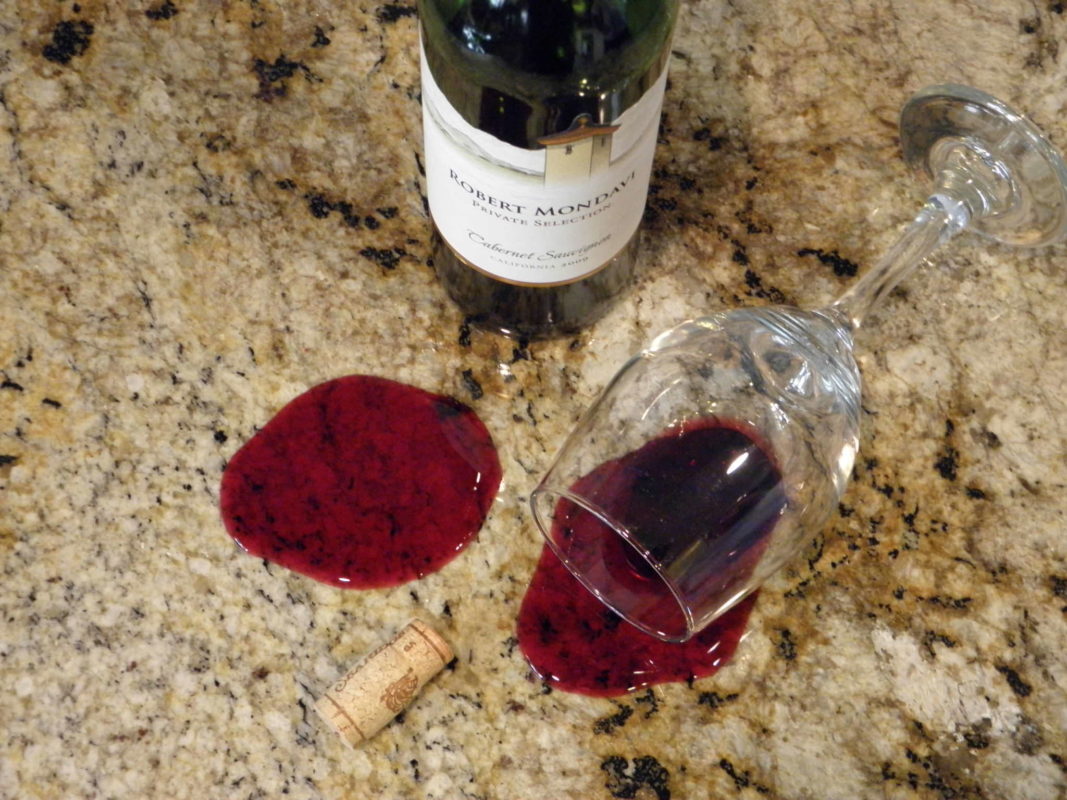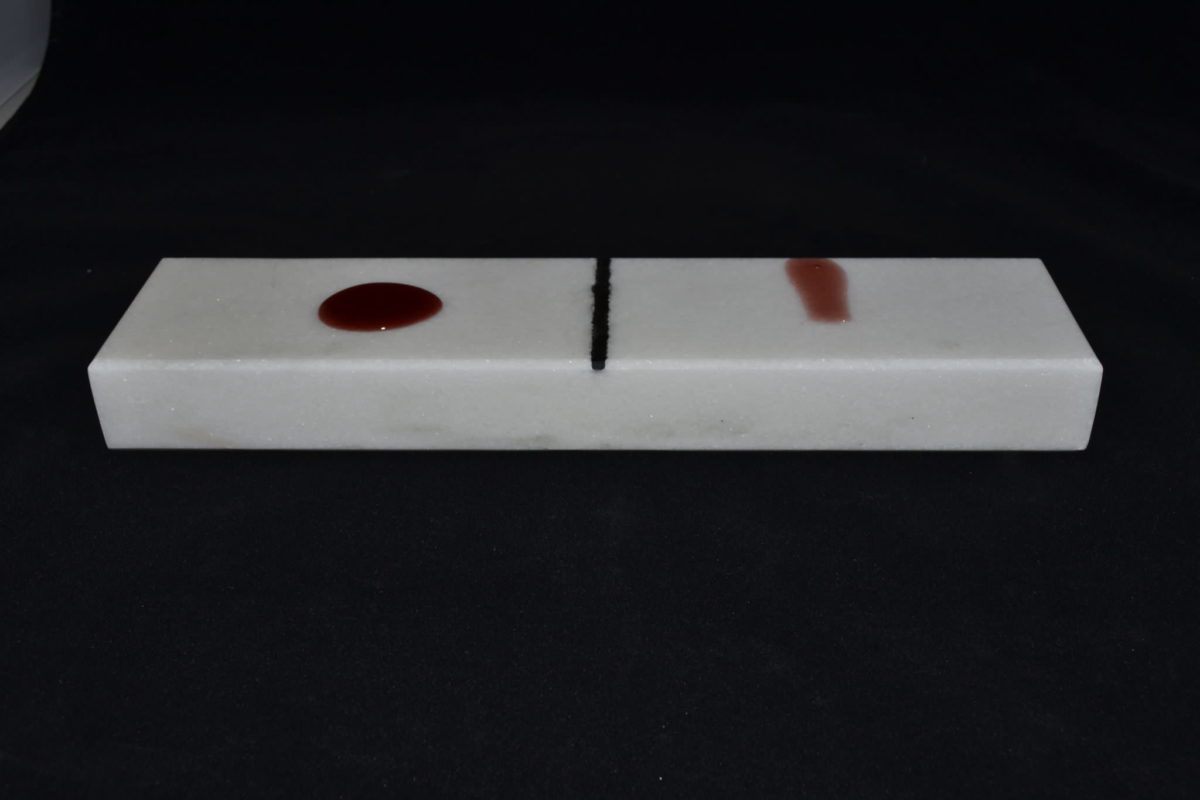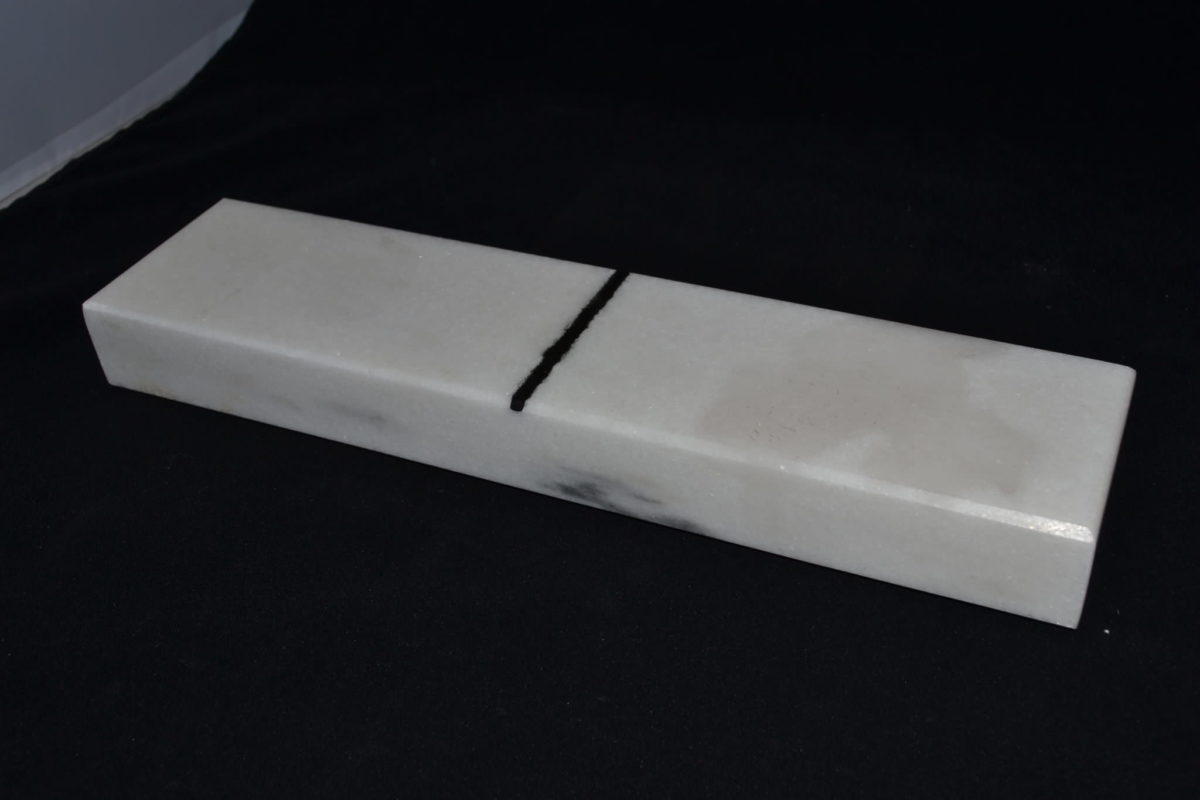
Protecting your Countertop Investment
When purchasing Natural Stone Countertops, you want your investment to last a lifetime.
Natural Stone, although tough in nature, is susceptible to dulling and scratching if not properly taken care of as Countertop Material.
The best way to ensure that your countertops remain as gorgeous as the day you bought them is to SEAL them.

What Does Sealing Your Countertops Mean, and Why Is It Important?
Sealing your countertops is a necessary part of buying Natural Stone.
Sealing your stone effectively makes a waterproof bond with the stone, a layer of sealant to protect the natural stone layer. It’s most importantly done to discourage staining on your countertops. Sealing allows for nothing to sink into the pores of the stone.
The Sealing process guarantees that water cannot permeate or get into the stone.

Sealed vs. Unsealed

The Red Wine stained the unsealed side
You can tell the difference between a sealed and unsealed countertop by the way the water pools on the surface. When sealed, liquids pool together and form a bubble on top of the stone. Unsealed countertops show water lying flat on the surface, as it slowly seeps into the pores of the stone. It’s important to keep water out of your countertops because it can discourage your chances of calcification or water stains.
It’s also important to seal your stone because it also keeps dirt, crumbs, and germs out of your countertops as well.
Maintaining your sealant takes into consideration what you use to clean your surfaces, and how often you continue to seal your stone. Avoid acidic cleaners, as they tend to wear down your sealant faster. With normal wear, we recommend sealing your countertops once a year. We also offer a 15-year sealer called Dry Treat.

